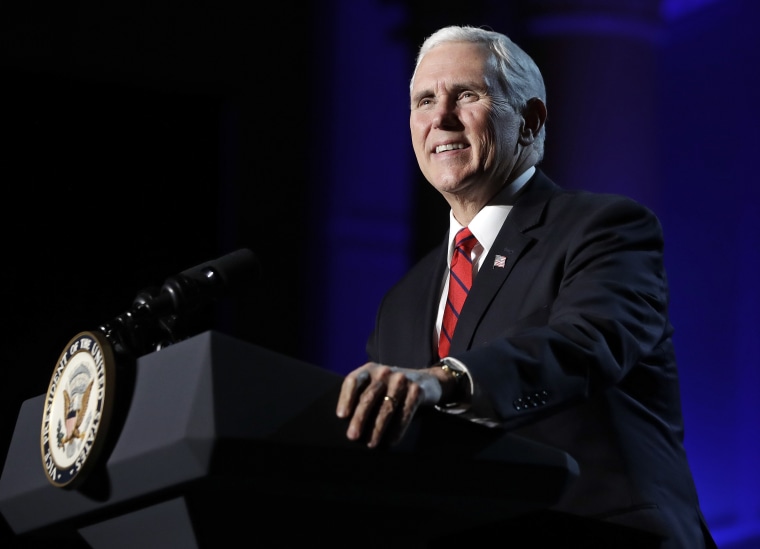Vice President Mike Pence was in New York on Saturday, speaking at the West Point graduation ceremony, where he used some unexpected rhetoric:
"America will always seek peace, but peace comes through strength. And you are now that strength."It is a virtual certainty that you will fight on a battlefield for America at some point in your life. You will lead soldiers in combat. It will happen."
Oh? Is there something more specific the vice president would like to share with the class?
Pence went on to tell West Point's graduates that some of them will "join the fight" against terrorists in the Middle East, others will "join the fight" in Asia-Pacific, while others still will "join the fight in Europe, where an aggressive Russia seeks to redraw international boundaries by force."
He added, "Some of you may even be called upon to serve in this hemisphere."
The vice president went on to say, "[W]herever you're called, I urge you to take what you learned here and put it into practice. Put your armor on, so that when -- not if -- that day comes, you'll be able to stand your ground."
To my ear, it was a disjointed message. On the one hand, Pence seemed to be saying something quite literal: West Point graduates will "put on armor," will "fight on a battlefield," and will serve "in combat."
On the other hand, the Indiana Republican also seemed to be speaking metaphorically about security theaters around the globe where there are possible threats, though in most cases, there are not actual battlefields with American servicemen and women facing combat conditions.
When discussing matters of life and death, and war and peace, these distinctions matter.
